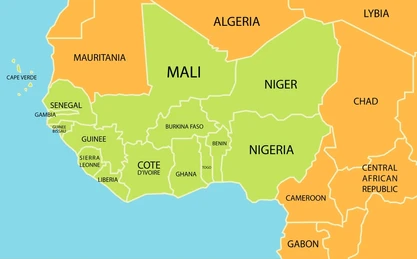Nana Kofi Ofori, London.
Introduction
The quality of a democratic system hinges on a credible electoral process characterised by the people’s free-will and good conscience to exercise their franchise to elect a candidate without inducement, duress, or coercion of any kind. Yet in a fledging democratic state like Ghana, recent by-elections, particularly that of Assin North, in the central region of Ghana, has attracted public condemnations for being transmogrified into an auction spree, with the two major political parties- New Patriotic Party (NPP) and National Democratic Congress (NDC) – blatantly buying votes from the citizens in cash and kind. The by-election, in question, stemmed from the Supreme Court of Ghana’s decision that Mr. James Gakye Qauyeson’s election as a Member of Parliament for the area was invalid, thereby mandating the Electoral Commission (EC) to announce June 27th 2023 as a new by-election date. This blog-post first explores the peculiar provision(s) of the Representation of People Law 1992- PNDCL 284 relating to vote-buying; second, it examines the implications of vote-buying on Ghana’s democratic enterprise; and third, offers recommendations to repose confidence in the politics surrounding the electoral system of the country.
The Representation of People Law 1992 (PNDCL 284)
Article 33 of PNDCL frowns upon bribery and inducements associated with voting whilst section 1A: (i) states that where a party “gives money or obtains an office for a voter in order to induce the voter to vote or refrain from voting; or (ii) “corruptly does such an act on account of a voter having voted or refrained from voting; or (iii) “makes a gift or provides something of value to a voter to induce the voter to vote in a certain way or to obtain the election of a candidate; or (B) if he advances or pays money or causes money to be paid to or for the use of a person with the intent that the money or part of it shall be expended in bribery at an election, or knowingly pays money or causes money to be paid to a person in discharge or repayment of money wholly or in part expended in bribery at an election.” The above provisions succinctly forbid any blatant attempts to influence election results through vote-buying and inducements. These provisions received affirmation in a UN General Comment No.25: The right to participate in public affairs, voting rights and the right of equal access to public service (Art. 25) : 12/T07/96.CCPR/C/21/Rev.1/Add.7, General Comment No. 25. (General Comments). General Comment No.25 further opines that “whatever form of constitution or government is in force, should adopt legislative and other measures as may be necessary to ensure that citizens have an effective opportunity to enjoy the right to vote.” Considering this tenet coupled with the provisions of Article 33 of PNDCL, the pervasive practice of vote-buying and inducements by the two dominant Ghanaian political parties, in the Assin North by-election, flagrantly breached domestic and international laws. The consequences of which are not only inimical to the fledging democratic enterprise of the Ghanaian state, but also exposes the country to ridicule in the sub-region and beyond the continent of Africa.
The Implications of Vote-buying on Ghana’s Democratic Architecture
Several implications abound in states where elections are perceived to be fraught with irregularities, especially vote-buying, as widely displayed throughout Assin North in the Ghanaian context. First, the basis for building and upholding sustainable democratic dispensation upon which the socio-economic and political structures of a state rest may be disjointed. Second, the conferment of authority upon the candidate(s) who emerged victorious may be doubtful; thus, impugning the electoral integrity and the political processes of the state. For example, the relative good-will and recognition enjoyed by Ghana as beacon of democracy in the sub-region of West Africa is likely to be tainted. Contemporaneously, a state with doubtful electoral practices such as vote -buying risks being branded corrupt; and consequently, undermines its relations with external organisations and foreign countries in political and economic agreements. Third, vote-buying induces potential social and political disorders originating from disgruntled candidates to set the stage for communal civil strife, wreaking havoc in many cases to destabilise the frontiers of development within the state. Fourth, political candidates with the requisite knowledge, integrity, good political-will and genuine passion to serve their people and constituents are disenfranchised through vote-buying schemes. This political vice is not only injurious to the Ghanaian experiment, which is fledging, but also dulls the desires and aspirations of future generations of growing to assume active and responsible positions in the political milieu of the country. Dampening the zeal and spirit of future political aspirants of Ghana through vote-buying is antithetical to the noble project of building a sustainable democratic state premised on fairer principles of ethics and values of civilized society. With this, some propositions are put forward to rid the Ghanaian electoral processes of vote-buying in order to pave the way for an efficient governance in which every citizen is confident to plays its part.
The way forward
Confidence in an electoral result/outcome is a prima facie condition to building a participatory democratic architecture of which Ghana has been an experiment for thirty-one years now. Below are some propositions to achieve that objective.
- There is an urgent need for public institutions- Ghana’s EC, Ministry of Information including social and non-governmental organisations – to play their part in educating the public about the vices and adverse effects of vote-buying on the socio-economic and cultural wellbeing of the people and country (Hendra T. Ardianto, 2020: How to stop Vote Buying: What did Researchers say?, Universitas Diponegoro, Indonesia).
- Institutional reform is another strategy through which the “pandemic” of vote-buying can be minimised to foster an electoral system that is open, fairer and assuring all Ghanaians of equal right to participate in the processes without discrimination as to race, sex, religion, tribe, faith or status. This equally beholds all political parties to educate and sensitise their members to treat fellow Ghanaians as one family striving for the common good of the country.
- Successive governments should work harder and selflessly to eradicate clientelism which is steeped in corruption and avarice among public servants and ministers of governments. This means that macro-economic and social policies should be people-centered and geared towards providing favourable measures to support the citizens against severe and depraved living standards.
- Educating political candidates to accept election outcomes in good faith without recourse to exhibiting grief is more likely to encourage the contestants to craft policies and transparent campaign messages that seek to persuade the people rather than vote-buying. With this strategy, honesty, integrity and fairness will be promulgated to the public, thus shaping the people’s voting decisions conscientiously to elect the best candidate.





No Comments